Requirements Engineering 2021 (series) /
TutorialsRequirements Engineering 2021
The 29th IEEE International Requirements Engineering Conference (RE’21) will continue the successful tutorial program of the RE conference series. RE’21 tutorials will focus on a variety of requirements-related topics of interest to industry, academia, and government.
We invite you to submit proposals for full-day ( approx. 7-hour) or half-day (approx. 3.5-hour) tutorials.
We invite you to submit proposals for full-day ( approx. 7-hour) or half-day (approx. 3.5-hour) tutorials.
Dates
Mon 20 SepDisplayed time zone: Eastern Time (US & Canada) change
Mon 20 Sep
Displayed time zone: Eastern Time (US & Canada) change
08:00 - 13:00 | |||
08:00 5hTutorial | Agile Requirements Engineering: from User Stories to Software Architectures Tutorials File Attached | ||
08:00 - 13:00 | |||
08:00 5hTutorial | Requirements Reuse for Exploring Stakeholder Needs Tutorials | ||
08:00 - 13:00 | |||
08:00 5hTutorial | Software Sustainability Requirements: from Elicitation to Functional Decomposition Tutorials | ||
12:00 - 15:00 | |||
12:00 3hTutorial | Requirements Engineering in the DevOps Era Tutorials | ||
Tue 21 SepDisplayed time zone: Eastern Time (US & Canada) change
Tue 21 Sep
Displayed time zone: Eastern Time (US & Canada) change
08:00 - 13:00 | |||
08:00 5hTutorial | Privacy Requirements Specification in Agile Software Development Tutorials Mariana Peixoto , Carla Silva Universidade Federal de Pernambuco, Jéssyka Vilela Universidade Federal de Pernambuco, Tony Gorschek Blekinge Institute of Technology / DocEngineering | ||
08:00 - 13:00 | |||
08:00 5hTutorial | Human Values in Requirements Engineering Tutorials | ||
08:00 - 13:00 | |||
08:00 5hTutorial | Ontology-Driven Requirements Engineering Tutorials Giancarlo Guizzardi , John Mylopoulos University of Ottawa, Renata Guizzardi Universidade Federal do Espirito Santo | ||
12:00 - 15:00 | Tutorial: The Sustainability Awareness FrameworkTutorials | ||
12:00 3hTutorial | The Sustainability Awareness Framework (SusAF) Tutorials Birgit Penzenstadler Chalmers | ||
Tutorials
Call for Tutorial Proposals
We welcome tutorial proposals related to requirements engineering and business requirements analysis, including but not limited to the topics below:
The presenters should be prepared to deliver the tutorial online, following the RE21 guidelines.
On-site tutorial delivery may also be possible, depending on the situation of the pandemic in September 2021
Tutorial Proposal Evaluation Criteria
Evaluation criteria include the quality of the proposal, the tutorial’s anticipated benefit for prospective participants, its fit within the program as a whole, and the qualification and experience of the presenter(s).
Accepted Tutorials
| Tutorial | Speakers |
|---|---|
| The Sustainability Awareness Framework (SusAF) | Birgit Penzenstadler |
| Requirements Reuse for Exploring Stakeholder Needs | Hermann Kaindl, Mike Mannion |
| Human Values in Requirements Engineering | Jon Whittle, Waqar Hussain |
| Software Sustainability Requirements: from Elicitation to Functional Decomposition | Theresia Ratih Dewi Saputri, Seok-Won Lee |
| Privacy Requirements Specification in Agile Software Development | Mariana Peixoto, Carla Silva, Jéssyka Vilela, Tony Gorschek |
| Requirements Engineering in the DevOps Era | Jean-Michel Bruel, Sébastien Mosser |
| Agile Requirements Engineering: from User Stories to Software Architectures | Fabiano Dalpiaz, Sjaak Brinkkemper |
| Ontology-Driven Requirements Engineering | Giancarlo Guizzardi, Renata Guizzardi, John Mylopoulos |
 The Sustainability Awareness Framework (SusAF)
The Sustainability Awareness Framework (SusAF)
Speakers:
 Birgit Penzenstadler (Chalmers Univ., Goteborg, Sweden)
Birgit Penzenstadler (Chalmers Univ., Goteborg, Sweden)
The Sustainability Awareness Framework (SusAF) aims to anticipate the effects of IT products and services. It considers five dimensions of sustainability (social, individual, environmental, economic, and technical) and across three orders of effect (direct, indirect, and systemic). We teach you how to apply it to systems you bring with you or example systems we have as a backup. The take-aways from the tutorial are 1) a concrete method for projecting potential sustainability impacts of a system, 2) a graphical illustration to visualize these impacts, and 3) a structure to communicate sustainability impacts to diverse stakeholders.
 |
Birgit Penzenstadler is an Associate Professor at the Chalmers University of Technology after moving from California State University Long Beach. Birgit has been investigating sustainability from the point of view of software engineering over the past four years, working on a body of knowledge with two SLRs and concepts of how to support sustainability from within RE. She has organized and moderated events of over 100 participants from different domains. She has held similar tutorials at Long Beach State (USA), KTH Stockholm (Sweden), Lappeenranta Lahti University of Technology (Finland), and at the Software Campus (Germany). |
 Requirements Reuse for Exploring Stakeholder Needs
Requirements Reuse for Exploring Stakeholder Needs
Speakers:
 Hermann Kaindl (TU Wien, Austria)
Hermann Kaindl (TU Wien, Austria)
 Mike Mannion (Glasgow Caledonian University, UK)
Mike Mannion (Glasgow Caledonian University, UK)
Several socio-economic trends, such as people’s demands for personalized software-intensive products, are generating unparalleled increases in the volume, variety, velocity and complexity of software-intensive products. This is placing considerable strain on software designers. Part of the solution is to make it easier to explore stakeholder needs by showcasing the range of similarity and variability between the products in a product line. A technical challenge is to create product development processes that include a systematic capability to manage the identification, selection and deployment of reusable requirements. Requirements reuse is not straightforward.
This tutorial presents and compares two different requirements reuse approaches, one in the context of product line engineering, the other in the context of case-based reasoning (invented in Artificial Intelligence). Both approaches have different key properties and trade-offs between the costs of making software artefacts reusable and the benefits of reusing them. To aid large-scale development we have proposed a FeatureSimilarity Model, which draws on both approaches to facilitate discovering requirements relationships using similarity metrics. Understanding the similarities and differences between products can aid suppliers assess whether there is value in new product development proposals, and customers assess whether there is value in one product over another concerning their needs.
This tutorial presents and compares two different requirements reuse approaches, one in the context of product line engineering, the other in the context of case-based reasoning (invented in Artificial Intelligence). Both approaches have different key properties and trade-offs between the costs of making software artefacts reusable and the benefits of reusing them. To aid large-scale development we have proposed a FeatureSimilarity Model, which draws on both approaches to facilitate discovering requirements relationships using similarity metrics. Understanding the similarities and differences between products can aid suppliers assess whether there is value in new product development proposals, and customers assess whether there is value in one product over another concerning their needs.
 |
Hermann Kaindl joined the Institute of Computer Technology at TU Wien in Vienna, Austria, in early 2003 as a full professor. Before moving to academia, he was a senior consultant with the division of program and systems engineering at Siemens Austria. There he gained more than 24 years of industrial experience in software development and human-computer interaction. He has published five books and more than 240 papers in refereed journals, books and conference proceedings. He is a Senior Member of the IEEE and a Distinguished Scientist Member of the ACM, and he is on the executive board of the Austrian Society for Artificial Intelligence. He has previously run more than 60 tutorials. |
 |
Mike Mannion is Assistant Vice-Principal (Academic) and Dean of School of Computing, Engineering & Built Environment at Glasgow Caledonian University, Glasgow, Scotland, UK. He has several years’ software engineering industry experience and his research interests include product-line engineering, software engineering and applications of artificial intelligence. He is a Chartered Engineer, a member of IEEE and ACM, and a Fellow of the British Computer Society. He has published more than 60 papers and delivered more than 30 tutorials. |
 Human Values in Requirements Engineering
Human Values in Requirements Engineering
Speakers:
 Jon Whittle ( CSIRO’s Data61 and Monash University Melbourne, Australia)
Jon Whittle ( CSIRO’s Data61 and Monash University Melbourne, Australia)
 Waqar Hussain (Monash University Melbourne, Australia)
Waqar Hussain (Monash University Melbourne, Australia)
Recent years have seen renewed interest in the social impact of technology, as major scandals such as Cambridge Analytica and bias in AI systems have made the international press. There is an increasing acceptance that software systems must properly embed human values – such as inclusion, diversity, social responsibility, and cultural context – in their design. The software engineering field, however, has been slow to adopt human-value based methods for software design, in contrast to other fields such as HCI. In this tutorial, we will give an overview of approaches for embedding human values in technology, summarizing work in other fields. We will then describe work in addressing human values in the software engineering field, with a specific focus on requirements engineering. Through a series of interactive exercises, we will help participants to explore what human values mean in a requirements engineering context, how they can be captured as part of requirements engineering, and practical steps that can be taken to address human values in software.
 |
Jon Whittle is Director of CSIRO’s Data61, Australia’s national research centre in data science and digital technologies. He is also an adjunct full Professor at the Faculty of Information Technology, Monash University. He co-leads the OVIS group at Monash, which is actively researching how to adapt software engineering to embed human values. As Director of Data61, Jon is actively involved in discussions around ethical AI – for example, Data61 developed Australia’s national AI Ethics framework for the Australian Government. He is also currently leading a large-scale interdisciplinary project on developing guidelines for responsible use of AI across numerous domains, such as health and the environment. Jon is an experienced international speaker. He is regularly invited as a speaker at both academic events (e.g., keynotes at RE’19, SANER’19, ICECCS’18, MobiQuitous’17, and SPLC) and industry events (e.g., Disruptive Innovation 2020, the Leadership Institute 2021, Commonwealth Bank 2020, Science for Policy 2020, ResponsibleTech 2020). He has co-delivered tutorials at MODELS (Best Tutorial Award 2015), AOSD, Brazilian Symposium on Software Engineering and RE’06. |
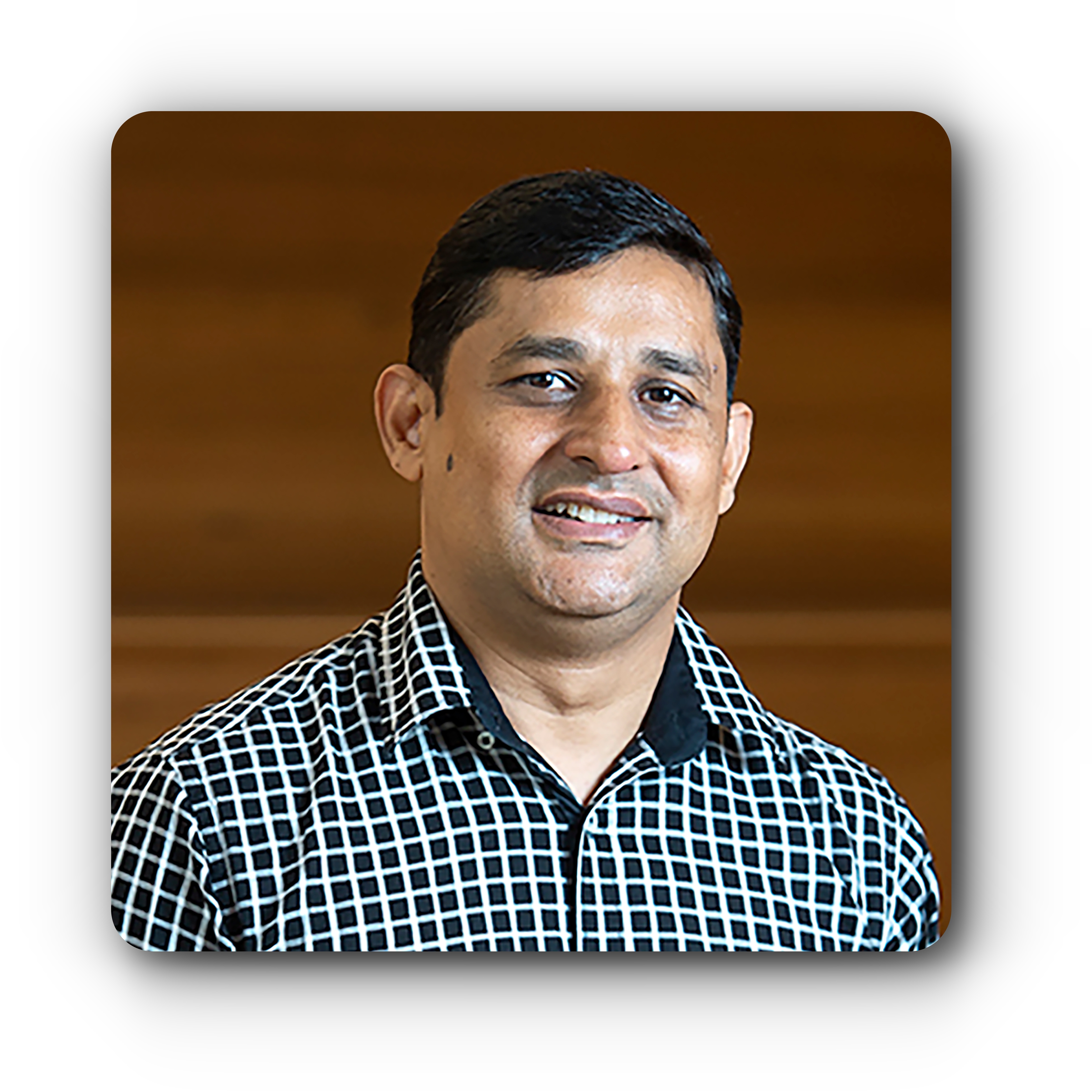 |
Waqar Hussain is a research fellow and co-leads Operationalizing Human Values in Software (OVIS) lab at Monash University, Melbourne. His research interests include ethical artificial intelligence, values-based system development, humancentric software engineering, and empirical software engineering. Waqar regularly collaborates with software practitioners and advocates for the inclusion of human values in software engineering and AI. His recent talks include Human Values Integration in Digital Mental Health (DIMH, 2020) and Championing Corporate and Human Values in Digital Transformation (FLFMA, 2019) in Melbourne that attracted more than 50 high profile industry practitioners from various domains and organizations including PwC, NAB, Fuji Xerox, Siemens Healthcare, Accenture, Fujitsu, BOSCH, Motorola and BP. Waqar holds a PhD in requirements change management in Global Software Engineering, received in 2016 from Auckland University of Technology, New Zealand. |
 Software Sustainability Requirements: from Elicitation to Functional Decomposition
Software Sustainability Requirements: from Elicitation to Functional Decomposition
Speakers:
 Theresia Ratih Dewi Saputri (Universitas Ciputra Surabaya, Indonesia)
Theresia Ratih Dewi Saputri (Universitas Ciputra Surabaya, Indonesia)
 Seok-Won Lee (Ajou University, South Korea)
Seok-Won Lee (Ajou University, South Korea)
Due to the critical role of software-intensive systems in society, software engineers have a responsibility to add sustainability as a goal while designing a software system. However, most of the engineers mostly focus on their specific areas. Moreover, sustainability is usually treated as an afterthought in current practice. This is not surprising because the concept of sustainability is still vague and at a high level of abstraction.
This tutorial proposes an integrated framework that allows software practitioners and academics to accommodate sustainability requirements that are aligned with the other software quality attributes to enhance sustainable development. Using the combination of goal-scenario based approach and feature modeling, the sustainability requirements are designed along with the system’s functional compositions. By using the provided reference model, we can show the practical way of addressing sustainability concerns in the software development process. It could help the requirements engineer to incorporate the sustainability concept in structuring requirements, decomposing functional implementation, and documenting the requirements artifacts. The process includes (1) investigating the stakeholders' needs related to sustainability (2) structuring software system requirements into a sustainability goal model and minimizes sustainability impacts based on gathered requirements, and (3) discovering and designing features to satisfy sustainability-related requirements that can be easily integrated with other requirements.
This tutorial proposes an integrated framework that allows software practitioners and academics to accommodate sustainability requirements that are aligned with the other software quality attributes to enhance sustainable development. Using the combination of goal-scenario based approach and feature modeling, the sustainability requirements are designed along with the system’s functional compositions. By using the provided reference model, we can show the practical way of addressing sustainability concerns in the software development process. It could help the requirements engineer to incorporate the sustainability concept in structuring requirements, decomposing functional implementation, and documenting the requirements artifacts. The process includes (1) investigating the stakeholders' needs related to sustainability (2) structuring software system requirements into a sustainability goal model and minimizes sustainability impacts based on gathered requirements, and (3) discovering and designing features to satisfy sustainability-related requirements that can be easily integrated with other requirements.
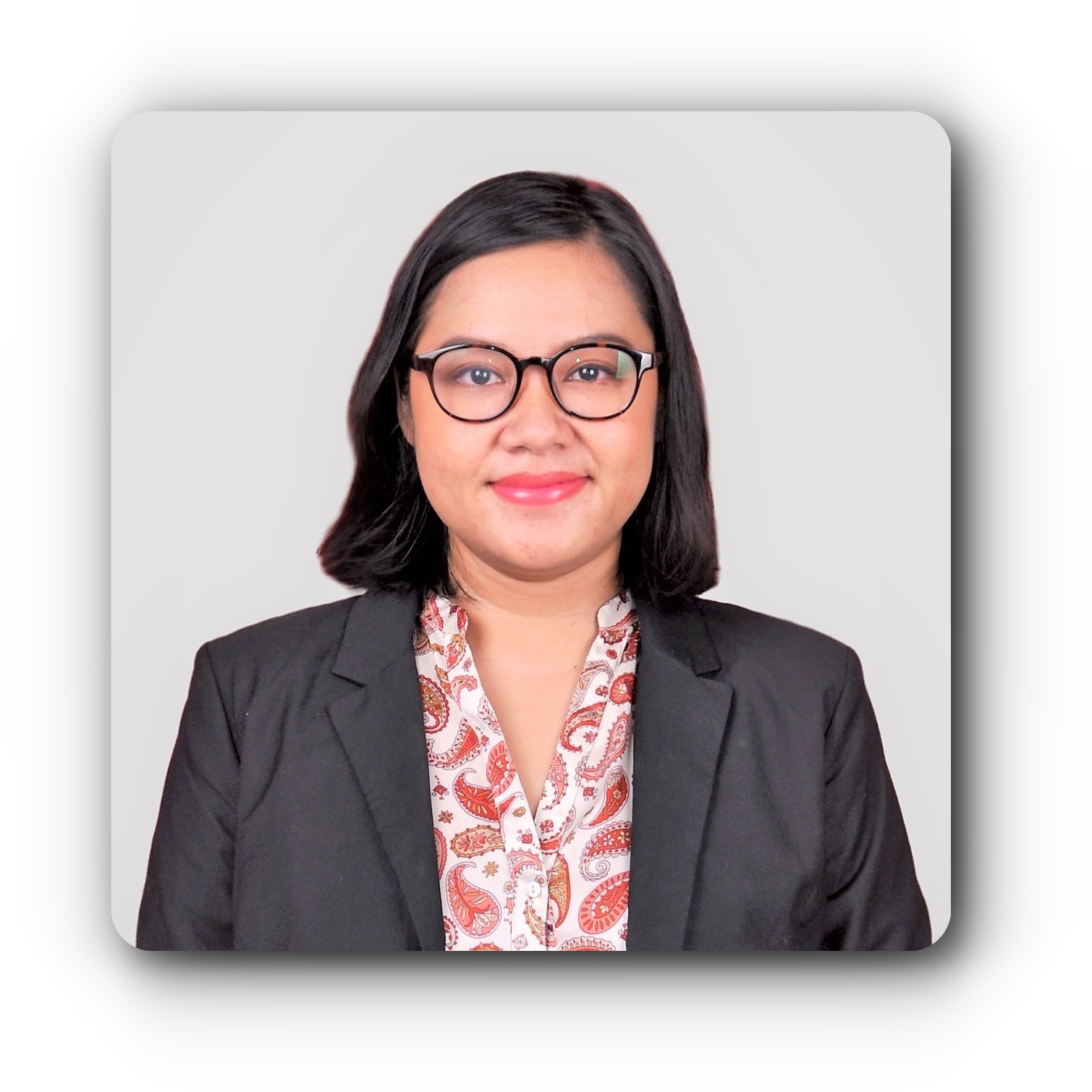 |
Dr. Theresia Saputri received the B.S degree in Information System from Sepuluh Nopember Institute of Technology, Surabaya, Indonesia, in 2011. She received her M.S degree in Computer Science and Engineering from Ajou University, Suwon, South Korea in 2014 and Ph.D degree in 2020. Her research interest includes the development of sustainable software system, requirements engineering for software sustainability, machine learning, and self-adaptive system. |
 |
Dr. Seok-Won Lee is a Full Professor and Chair of the Dept. of Software & Computer Engineering and Dept. of Applied Artificial Intelligence, and Head of Graduate School of Software at Ajou University in Republic of Korea. He was a faculty member at the University of Texas at San Antonio and University of North Carolina at Charlotte in the USA. He also worked at Science Applications International Corporation (SAIC) and IBM T.J. Watson Research Center as a senior research scientist. His areas of specialization include software engineering, knowledge acquisition, machine learning, and information assurance. He has published more than 180 peer reviewed articles. He is a senior member of IEEE, ACM and AAAI. |
 Privacy Requirements Specification in Agile Software Development
Privacy Requirements Specification in Agile Software Development
Speakers:
 Mariana Peixoto ( Federal University of Pernambuco (UFPE), Brazil)
Mariana Peixoto ( Federal University of Pernambuco (UFPE), Brazil)
 Carla Silva ( Federal University of Pernambuco (UFPE), Brazil)
Carla Silva ( Federal University of Pernambuco (UFPE), Brazil)
 Jéssyka Vilela ( Federal University of Pernambuco (UFPE), Brazil)
Jéssyka Vilela ( Federal University of Pernambuco (UFPE), Brazil)
 Tony Gorschek (Blekinge Institute of Technology (BTH), Sweden)
Tony Gorschek (Blekinge Institute of Technology (BTH), Sweden)
Privacy has become a concern in Agile Software Development (ASD), either to satisfy users' needs or to comply with privacy laws. However, recent studies have shown that ASD approaches still neglect non-functional requirements (NFRs), as is the privacy case. This concern and new data protection laws that came into force led companies to face the challenges to understand the laws and to comply with them. In addition, research has shown that many developers do not have sufficient knowledge about how to develop privacy-sensitive software.
Motivated by this scenario, this tutorial aims to draw attention to the need to understand privacy from the beginning of the software development lifecycle. Initially, we will present an overview of privacy, as well as several privacy principles. Later, we will show the main data protection laws (In-depth detailing of the General Data Protection Regulation - GDPR). Then, we will discuss how to read and evaluate privacy policies. Finally, we will present a technique for specifying privacy requirements in ASD called Privacy Criteria Method (PCM). At the end of the tutorial, participants will be able to have a critical and technical view of privacy when performing the requirements specification activity.
Motivated by this scenario, this tutorial aims to draw attention to the need to understand privacy from the beginning of the software development lifecycle. Initially, we will present an overview of privacy, as well as several privacy principles. Later, we will show the main data protection laws (In-depth detailing of the General Data Protection Regulation - GDPR). Then, we will discuss how to read and evaluate privacy policies. Finally, we will present a technique for specifying privacy requirements in ASD called Privacy Criteria Method (PCM). At the end of the tutorial, participants will be able to have a critical and technical view of privacy when performing the requirements specification activity.
 |
Mariana Peixoto is a Ph.D. student at the Center of Informatics of the Universidade Federal de Pernambuco (CIn-UFPE), Brazil, since 2016. She received her MSc degree in 2016 in Computer Science from UFPE. Graduation in Computer Science from Universidade Federal da Paraíba - UFPB (2013). She has been involved with extension projects and research and development projects. Her research interests are Software Engineering, Requirements Engineering, Legal Compliance and Agile Software Development. |
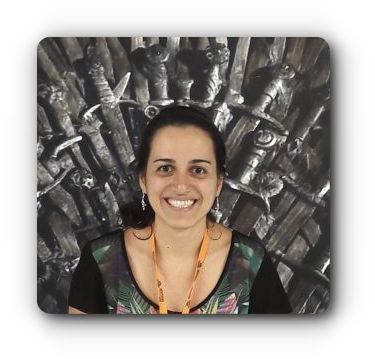 |
Carla Silva is an Associate Professor at CIn-UFPE. She earned a Ph.D. in Computer Science from UFPE in 2007. For the past five years, she has been researching topics on privacy requirements specification, legal compliance and agile practices in safety-critical systems. She has been serving as a Program Committee member of conferences, such as RE, ICSE, EASE, ACM SAC RE Track, CibSE, CBSoft and WER. Occasionally, she serves as a reviewer for scientific journals and has reviewed papers for the EMSE, JSS, JSERD, CLEIej and IST. |
 |
Jéssyka Vilela is Adjunct Professor at Universidade Federal de Pernambuco (UFPE). Previously, she held an Associate Professor position at Universidade Federal do Ceará (UFC) from 2017-2019. She received her PhD degree in 2018 and MSc degree in 2015 both in Computer Science from UFPE. Graduation in Computer Engineering from Universidade Federal do Vale do São Francisco - UNIVASF (2012). She has been involved with extension projects as well as research and development projects with public organizations. Her main research lines include Software Engineering, Requirements Engineering, Safety-Critical Systems, and Information Security. |
 |
Tony Gorschek is a Professor of Software Engineering at Blekinge Institute of Technology - where he works as a research leader and scientist in close collaboration with industrial partners. Dr. Gorschek has over fifteen years industrial experience as a CTO, senior executive consultant and engineer. In addition, he is a serial entrepreneur – with five startups. At present he works as a research leader and in several research projects developing scalable, efficient and effective solutions in the areas of Requirements Engineering, Product Management, Value based product development, and Real Agile™ and Lean product development and evolution. Dr. Gorschek leads the SERT profile (Software Engineering ReThought) - Swedens largest software engineering research initiative, developing the next generation of applied empirical research movements to meet the challenges of the next generation of software intensive products and services. www.rethought.se www.gorschek.com |
 Requirements Engineering in the DevOps Era
Requirements Engineering in the DevOps Era
Speaker:
 Jean-Michel Bruel (Toulouse University, France)
Jean-Michel Bruel (Toulouse University, France)
 Sébastien Mosser (Université du Québec à Montréal, Canada)
Sébastien Mosser (Université du Québec à Montréal, Canada)
We propose a tutorial on Requirements Engineering in an DevOps context that aims at exploring the boundaries between requirements, specifications, stories, scenarios and tests. We will capitalize on the well-known a concept of user stories and epics and their usage for expressing user requirements. The objective of the tutorial is to focus on the automation of the evaluation of such requirements based on definition of done acceptance criteria. We will demonstrate how such requirements can be tracked in a project management tool and linked to source code development. At the source code level, we will demonstrate how the stories and the associated acceptance scenarios can be modeled using the Gherkin language and linked to classical unit tests to automate their validation. Finally, a continuous integration environment will be deployed using Docker to link together the different tools and offer an automated pipeline for software developers, bridging the gap between requirements and code development.
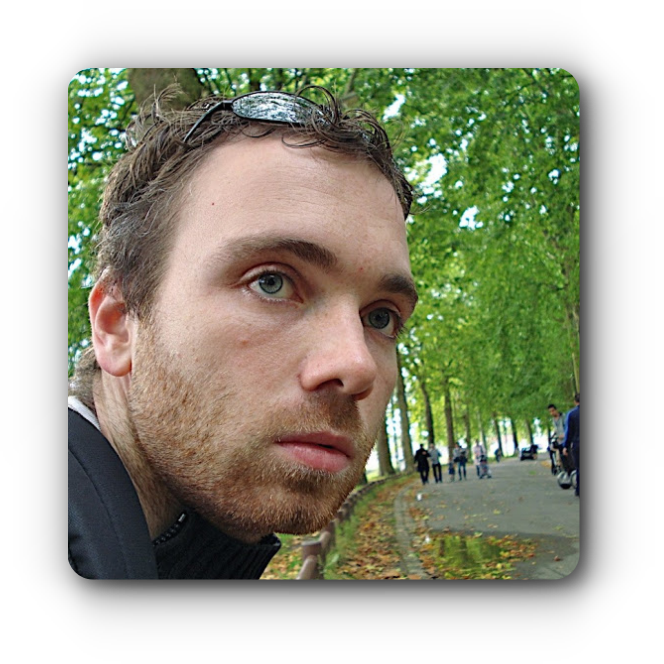 |
Sebastien Mosser is a Professor of Software Engineering at Université du Québec à Montréal (UQAM). His research interests cover DevOps, software development and separation of concerns mechanisms, with a particular focus on domain-specific languages, model-driven engineering and software composition. Since 2007, he has contributed to the software composition field by providing composition mechanisms used to tame variability in several domain, such as cloud, internet of things, business processes and microservices. Sebastien was Virtual Chair of MODELS 2020, and has been part of the organization and program committees of several conferences and workshops related to variability management (e.g., VaMOS, SPLC), model-driven engineering (e.g., MODELS, MODELWARD) and software development (e.g., ICSE artefacts evaluation), including industrial events. |
 |
Jean-Michel Bruel is Professor at the University of Toulouse (France). He is leading the SM@RT team, specialized in models and language engineering. He has animated several tutorials at MODELS or RE. He has been teaching Agile Methods, Requirements Engineering, and Model-Based Systems Engineering for more than 12 years. |
 Agile Requirements Engineering: from User Stories to Software Architectures
Agile Requirements Engineering: from User Stories to Software Architectures
Speakers:
 Fabiano Dalpiaz (Utrecht University, Netherlands)
Fabiano Dalpiaz (Utrecht University, Netherlands)
 Sjaak Brinkkemper (Utrecht University, Netherlands)
Sjaak Brinkkemper (Utrecht University, Netherlands)
90% of agile practitioners employ user stories for capturing requirements, also thanks to embedding of this practice within development tools. Among user story users, about 70% follow a simple template: As a role, I want to action, so that benefit. User stories’ popularity among practitioners and their simple yet strict structure make them ideal candidates for automatic reasoning based on natural language processing. In our research, we have found that about 50% of real-world user stories contain easily preventable linguistic defects. To alleviate this problem, we have created tool-supported methods that facilitate the creation of better user stories.
This tutorial combines previous work of the RE-Lab@UU into a pipeline for working with user stories: (1) The basics of creating user stories, and their use in requirements engineering; (2) How to improve user story quality with the Quality User Story Framework and AQUSA tool; (3) How to generate conceptual models from user stories using the Visual Narrator tool and analyze them for possible ambiguity and inconsistency; and (4) How to link requirements to architectures via the RE4SA model. Our approach is demonstrated with results obtained from 20+ software companies employing user stories. Index Terms—Agile requirements engineering, user stories, NLP, AQUSA, Visual Narrator, REVV-Light, RE4SA.
This tutorial combines previous work of the RE-Lab@UU into a pipeline for working with user stories: (1) The basics of creating user stories, and their use in requirements engineering; (2) How to improve user story quality with the Quality User Story Framework and AQUSA tool; (3) How to generate conceptual models from user stories using the Visual Narrator tool and analyze them for possible ambiguity and inconsistency; and (4) How to link requirements to architectures via the RE4SA model. Our approach is demonstrated with results obtained from 20+ software companies employing user stories. Index Terms—Agile requirements engineering, user stories, NLP, AQUSA, Visual Narrator, REVV-Light, RE4SA.
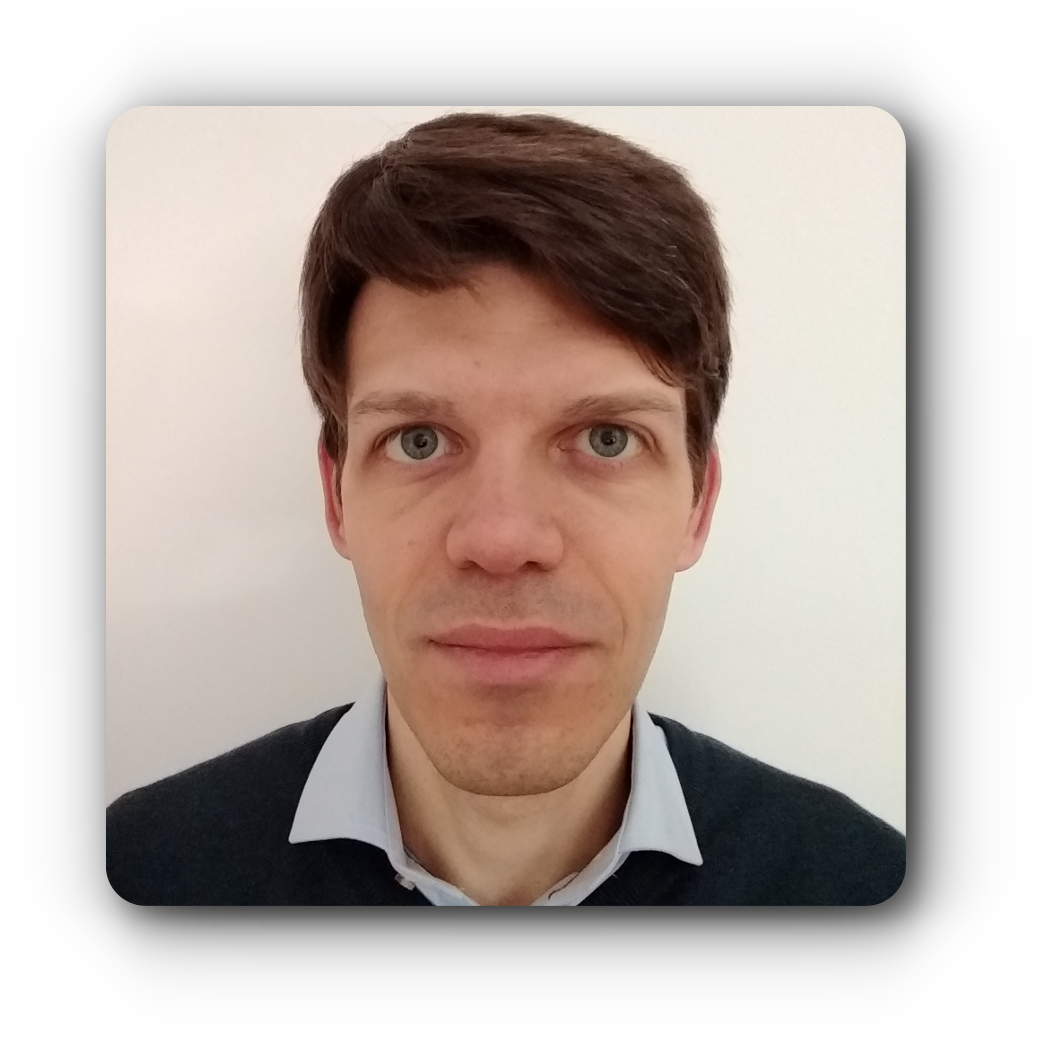 |
Fabiano Dalpiaz is a tenured assistant professor in the Dept. of Information and Computing Sciences at Utrecht University in the Netherlands. He is principal investigator in the department’s Requirements Engineering lab. He is and was PC co-chair of international conferences such as RCIS 2020, REFSQ 2021, and RE@Next! 2021. He is an associate editor of the Requirements Engineering Journal and of the Business & Information Systems Engineering Journal. |
 |
Sjaak Brinkkemper is full professor of Software Production at the Dept. of Information and Computing Sciences of Utrecht University, the Netherlands. He leads a group of about twentyfive researchers specialized in product software development and entrepreneurship. The main research themes of the group are methodology of software production, requirements engineering, software ecosystems and ICT sustainability. Brinkkemper has published about 10 books and over 170 papers. |
 Ontology-Driven Requirements Engineering
Ontology-Driven Requirements Engineering
Speakers:
 Giancarlo Guizzardi (Free University of Bolzano-Bozen, Italy, and University of Twente, Netherlands )
Giancarlo Guizzardi (Free University of Bolzano-Bozen, Italy, and University of Twente, Netherlands )
 Renata Guizzardi (University of Twente, Netherlands)
Renata Guizzardi (University of Twente, Netherlands)
 John Mylopoulos (University of Ottawa, Canada)
John Mylopoulos (University of Ottawa, Canada)
The advent of socio-technical, cyber-physical and Artificial Intelligence (AI) systems has broadened the scope of requirements engineering which must now deal with new classes of requirements, concerning, e.g., ethics, privacy and trust. Unfortunately, requirements engineers cannot be expected to understand the qualities behind these new classes of systems so that they can conduct elicitation, analysis and operationalization. To address this issue, we present here a novel approach for conducting requirements engineering. The approach is grounded on foundational theories from the area of applied ontology, as well as on methodological and engineering tools derived from those theories. Moreover, it proposes a requirements engineering process that starts with the adoption of a domain model properly constructed using these techniques, which is then used to guide the activities of requirements analysis. We illustrate the approach by: conducting an ontological analysis of the very notions of functional and non-functional requirements; constructing examples of ontology-based domain modeling in the areas of Risk, Value and Trust; exemplifying the analysis and derivation of Ethicality requirements.
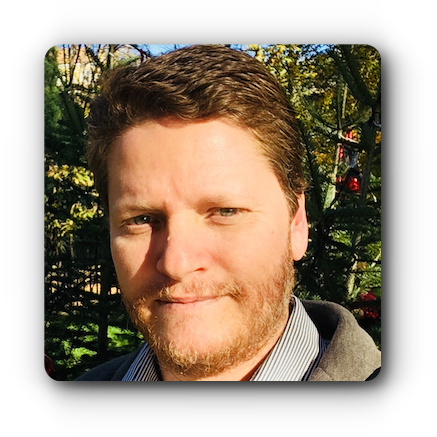 |
Giancarlo Guizzardi is a Professor of Computer Science at the Free University of Bolzano-Bozen, Italy, where he leads the Conceptual and Cognitive Modeling Research Group (CORE). He is also a Professor of Software Science and Evolution at the University of Twente, The Netherlands. He is a founding member of the Ontology & Conceptual Modeling Research Group (NEMO) in Brazil. He has been active for more than two decades in the areas of Conceptual Modeling, Knowledge Representation, Software and Information Systems Engineering, and Enterprise Computing, working with a multi-disciplinary approach that combines results from Formal Ontology, Cognitive Science, Logics, and Linguistics. He is currently an associate editor for the Applied Ontology journal and for Data & Knowledge Engineering. He is also a member of the ER Steering Committee and of the Advisory Board of the International Association for Ontology and its Applications (IAOA). Over the years, he has been involved in many technology transfer activities with industry in domains such as tourism, government, risk, healthcare, complex media management, digital journalism,energy, distributed sofware engineering, e-commerce, mobile payment, telecommunications, etc. |
 |
Renata Guizzardi is currently an Assistant Professor at the Behavioral, Management and Social Sciences Faculty, (IEBIS group) of the University of Twente, in the Netherlands. Moreover, she is a founding member of the Ontology Conceptual Modeling Research Group (NEMO) and of the Laboratory of Supporting Technologies for Collaborative Networks (LabTAR), at UFES, Brazil, where she held an Associate Professor position from 2009-2016. In 2006, she received her PhD in Computer Science from the University of Twente in the Netherlands with a thesis entitled Agent Oriented Constructivist Knowledge Management. She has also been a visiting scholar at the Bruno Kessler Foundation (FBK) in 2006 and 2018, and at the University of Trento in 2013-2014, Italy. In 2018, she was a Senior Research Associate at the University of Bristol, UK. Her main research interests include Knowledge Management, Ontologies and Goal-oriented Modeling. She participated in the organization committee of several conferences, such as co-organizer of iStar 2020 co-located with RE 2020, and co-organizer of RE4AI 2020 co-located with REFSQ 2020. Since 2017, she acts as the vice-chair of the Steering Committee of the Ibero-american Conference on Software Engineering (CIbSE). |
 |
John Mylopoulos is currently a Visiting Professor at the University of Ottawa. He received his BEng degree from Brown University in 1966 and his PhD degree from Princeton in 1970, the year he joined the faculty of the University of Toronto. His research interests include Requirements Engineering, Data Semantics and Knowledge Management. He retired from Toronto in 2009, and joined the University of Trento (Italy) where he led a large European Research Council (ERC) project on Software Engineering (2011-16). He is the recipient of the first Outstanding Services Award given by the Canadian AI Society (1992), a co-recipient of the most influential paper award of the 1994 International Conference on Software Engineering, a fellow of the American Association for AI (AAAI), the elected president of the VLDB Endowment (1998-01, re-elected for the period 2002-05), a Peter Chen Award Winner for Conceptual Modeling, and a fellow of the Royal Society of Canada. |
We will provide further information regarding the tutorial format and schedule shortly.
Submission Instructions
Tutorial proposals should not exceed two pages (not counting appendices) and must be submitted electronically as PDF. Tutorial proposals should contain the following information:
The abstract should be between 140 and 250 words. If the proposal is accepted, the title and abstract will appear in advertisements and on the conference website.
2-3 sentences describing the motivation for why this topic is relevant to the main conference. If your tutorial has particular applicability to practitioners from industry, describe this relevance in another 2-3 sentences. If your tutorial is accepted, then this description will be used as early publicity for the tutorial.
Full-day (6-hour) or half-day (3-hour).
Envision topics (e.g., in the form of a table of contents of the tutorial) Please indicate the number and type of interactive activities (such as exercises) for tutorial attendees and motivation of why such activities have been chosen.
What type of background should the tutorial attendees have? What is the envisioned number of attendees desired for the tutorial (minimum and maximum)?
Have you offered this tutorial before? If so, please provide a history of the venues, dates, and approximate attendance numbers.
Provide the name and a brief (2-3 sentence) biography for each of the tutorial presenters that highlights their qualifications with respect to the tutorial.
Plans for promoting the tutorial and attracting participants.
Provide two to four sample slides from the tutorial.
Tutorial proposals submitted to RE 2021 must follow the the IEEE formatting guidelines (Tutorial Proposal Word Template)